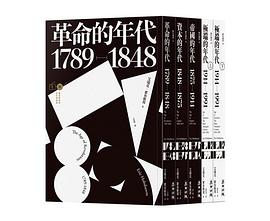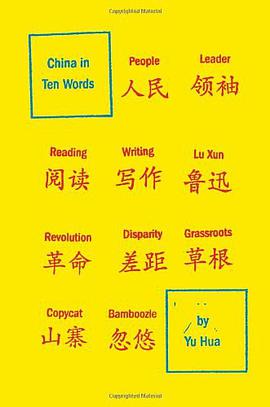霍布斯邦的年代四部曲 豆瓣
作者:
[英] 艾瑞克·霍布斯鲍姆
译者:
王章輝
/
賈士蘅
…
麥田
2020
- 9
《革命的年代》革命的年代是一場新舊交替的雙元革命,舊經濟被碾碎於工業革命的巨輪下,舊體制被送上民主斷頭台。本書分為兩部分,先從一七八○年代的發展說起,並詳述工業革命及法國大革命對世界的影響。第二部分則是詳述革命對世界所造成的結果,分別從土地、工業、職業、勞動貧民、宗教、藝術、科學等分述之。霍布斯邦以他精湛的筆法,分析歐洲歷史上最具意義的六十年。
《資本的年代》一八六○年代,世界經濟和政治詞彙裡多了一個新詞:「資本主義」,自此開始影響全球,在經濟一片大好繁榮時代裡,掌控資本科技的勝利者,主宰了抱持傳統的失敗者。大批農民遠離淪為商品的土地,流向城市、工業,在無垠的環境裡緩慢凝結其工人意識,受人敬重的資產階級,在其堅實的家庭堡壘中,創造出自由主義的不朽傳奇。一個以自由主義資產階級為主軸的世紀,一個改造世界的世紀。
《帝國的年代》資本主義國家迎來了日趨穩定的經濟和社會狀況,實現了科學、藝術的偉大革新,並將其經濟和軍事上的霸權正式轉化為有系統的征伐、兼並和統治,使世界進入一個殖民帝國的時代。另一方面,這一切又不可避免地激起了反叛和革命的合並力量。工人階級大規模、有組織的運動在這一時期突然出現,並且要求推翻資本主義。帝國格局也慢慢演變成一種越來越惡化,而且超出各國政府控制能力的國際形勢,最終導致第一次世界大戰的爆發。
《極端的年代》霍布斯邦定義此時期為「短二十世紀」。從一九一四年世界大戰爆發起,到二次大戰結束,是大災難的時期。緊接著,是一段經濟成長異常繁榮,社會進行重大變遷時期;這短短數十年光明對人類社會造成的改變,恐怕遠勝任何長度相當的歷史時期。如今回溯起來,它確可以視為某種黃金年代。而二十世紀的極端後一部分,則是一個解體分散、彷徨不定、危機重重的年代──其實對世界的極大部分來說,如非洲、前蘇聯,以及歐洲前社會主義地區,則是另一災難時期。
《資本的年代》一八六○年代,世界經濟和政治詞彙裡多了一個新詞:「資本主義」,自此開始影響全球,在經濟一片大好繁榮時代裡,掌控資本科技的勝利者,主宰了抱持傳統的失敗者。大批農民遠離淪為商品的土地,流向城市、工業,在無垠的環境裡緩慢凝結其工人意識,受人敬重的資產階級,在其堅實的家庭堡壘中,創造出自由主義的不朽傳奇。一個以自由主義資產階級為主軸的世紀,一個改造世界的世紀。
《帝國的年代》資本主義國家迎來了日趨穩定的經濟和社會狀況,實現了科學、藝術的偉大革新,並將其經濟和軍事上的霸權正式轉化為有系統的征伐、兼並和統治,使世界進入一個殖民帝國的時代。另一方面,這一切又不可避免地激起了反叛和革命的合並力量。工人階級大規模、有組織的運動在這一時期突然出現,並且要求推翻資本主義。帝國格局也慢慢演變成一種越來越惡化,而且超出各國政府控制能力的國際形勢,最終導致第一次世界大戰的爆發。
《極端的年代》霍布斯邦定義此時期為「短二十世紀」。從一九一四年世界大戰爆發起,到二次大戰結束,是大災難的時期。緊接著,是一段經濟成長異常繁榮,社會進行重大變遷時期;這短短數十年光明對人類社會造成的改變,恐怕遠勝任何長度相當的歷史時期。如今回溯起來,它確可以視為某種黃金年代。而二十世紀的極端後一部分,則是一個解體分散、彷徨不定、危機重重的年代──其實對世界的極大部分來說,如非洲、前蘇聯,以及歐洲前社會主義地區,則是另一災難時期。

